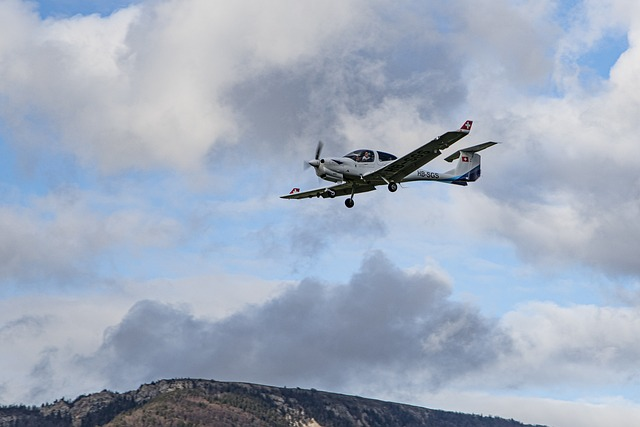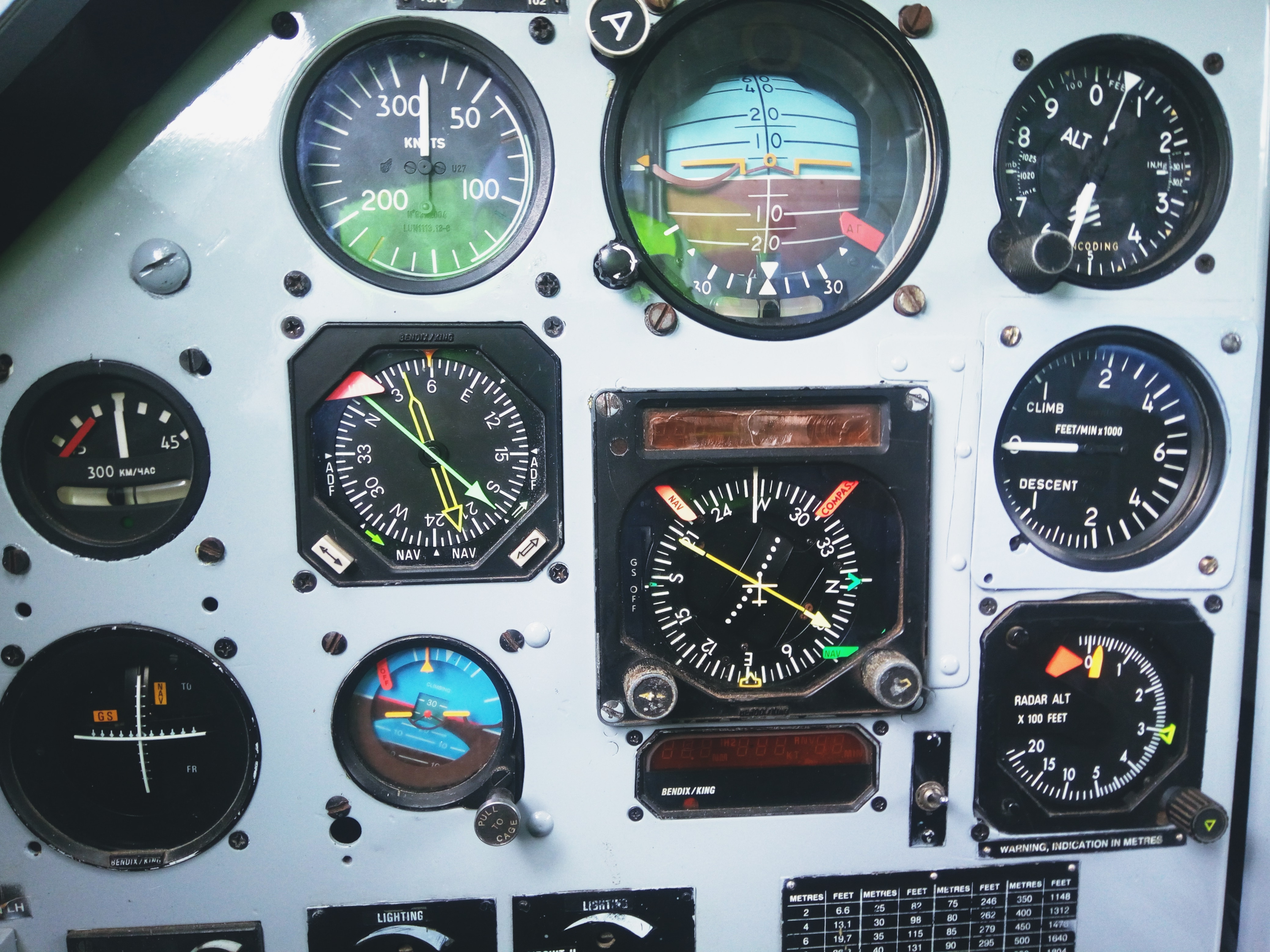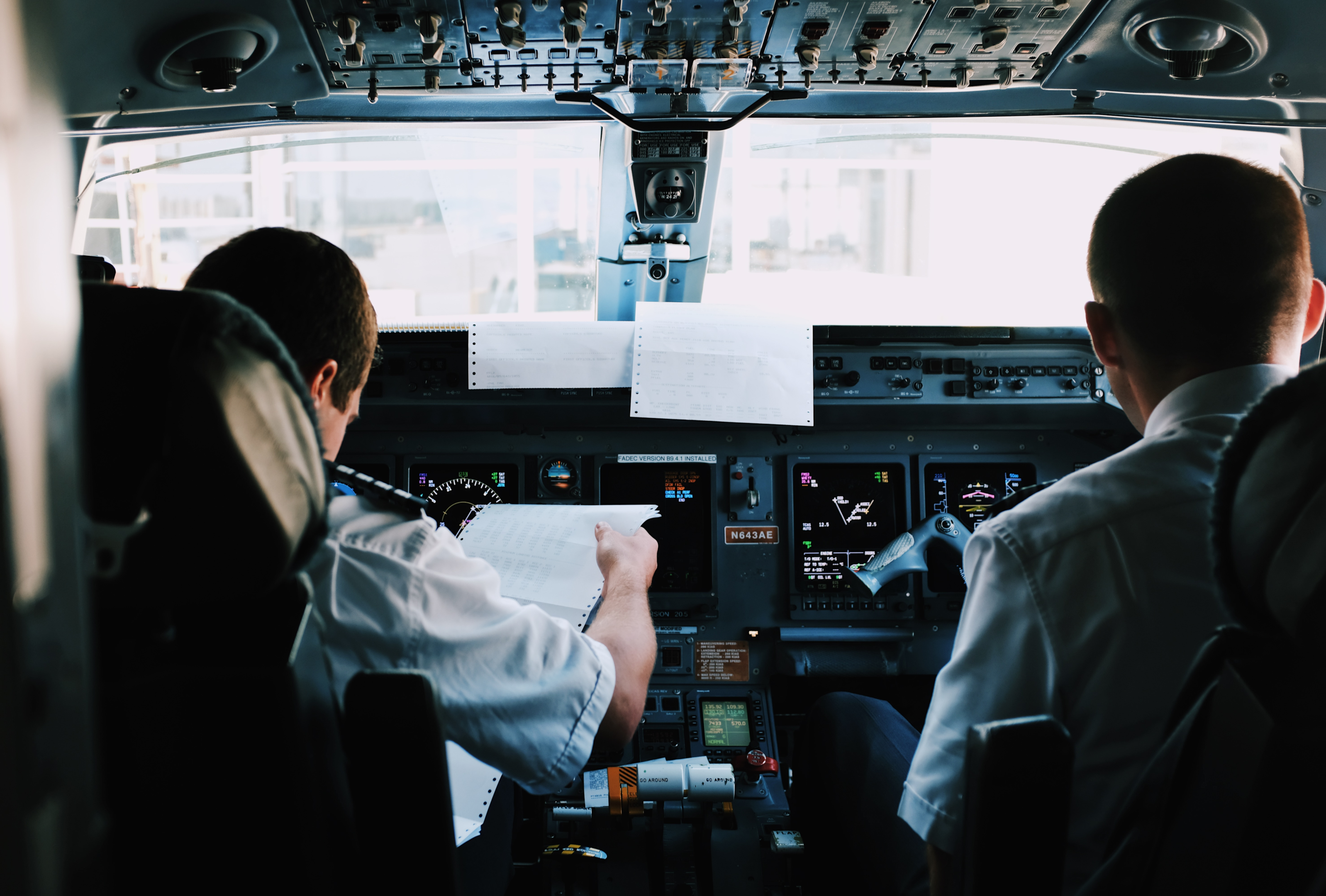How To Become a Pilot: Steps and Requirements
Jul 14, 2023
Want to know how to become a pilot? Here's what you need to know. Whether you're looking to get your private pilot certificate, commercial pilot certificate, or airline transport pilot certification, becoming a pilot requires both formal training and certification, as well as the ability to meet certain physical and medical requirements.
But if you're willing to put in the work, it can be an immensely rewarding career. Read on to learn more about how to become a pilot.

Determine if you meet the age, physical, and educational requirements to become a pilot.
Becoming a pilot requires meeting certain criteria concerning age, physical, and educational requirements. The Federal Aviation Administration (FAA) stipulates that you must be at least 18 years old and have obtained at least a high school diploma or its equivalent in order to apply for a pilot’s license.
Additionally, for the FAA Medical Certificate, one must pass an aviation medical examination conducted by an authorized FAA Aviation Medical Examiner.
Ultimately, how to become a pilot depends on several factors and having satisfactory results from the required tests typically determine who will obtain the necessary credentials to fly.
Choose the type of pilot certificate you wish to earn based on your goals and needs.
When deciding on the type of pilot certificate to earn, it’s important to consider your goals and needs. Depending on what you hope to achieve, you can focus on private pilot certification, commercial pilot certification, airline transport pilot certification or obtaining an instrument rating.
Private Pilot Certificate
A private pilot license will allow you to fly an aircraft for fun or business so long as you are not being paid for the flying you do. If you don't have an instrument rating, your flights will be limited to visual flight rules.
Instrument Pilot Rating
If, however, you want to be able to fly in instrument flight rules, which includes weather with clouds, rain, or poor visibility, you will need to begin flight training for an instrument pilot rating. Once you are legal to fly using instrument flight rules, your flexibility to fly and gain flight experience will expand significantly.

Commercial Pilot Certificate
If you want to be paid for the time you spend flying aircraft, you will need to get a commercial pilot certificate. The commercial pilot will build on the skills learned as a private pilot and expand on them until reaching a professional level of safety and proficiency. Given the time and skills involved, it takes a passion for flying to become a commercial pilot.
Certified Flight Instructor Certificate
One of the best ways for commercial pilots to learn how to fly better and to build flight hours is to become a certified flight instructor.
Certified flight instructors teach student pilots how to become safe pilots. In their work at flight schools across the nation, they can begin with people who have never flown before, help them get their student pilot certificate, and bring them all the way to receiving their airline transport pilot certificate, if that is the student pilot's goal.
If you decide to become a pilot, your flight instructor will be an important part of your path to the sky!
Each certificate has specific requirements in terms of hours and practice as well as applicable costs required.
Also, if you already have a private pilot certificate but seek to expand your flying abilities later in life, any advanced certificates obtained will still require knowledge-based testing prior to obtainment.
All certifications provide very fulfilling career opportunities for those interested in aviation and the skies above!

Prepare for your FAA written exam by exploring ground school.
If you're thinking of becoming a pilot and earning your private pilot certificate, ground school is an essential part of the training process.
A ground school is a foundational course that covers all the topics related to flight, such as aviation regulations, air navigation, weather, aircraft engine principles, and instrument operation. You will also learn all of the private pilot license requirements.
While ground schools used to be taught in-person at physical locations, modern options now exist as online ground schools.
An online ground school allows you to learn the same material on your own time, at your own pace, with videos by instructor experts.
Preparing for your FAA written exam can be made easier with ground schooling—so make sure to explore this important part of your pilot training journey before you take off!
Start flight training with a certified flight instructor.
If your ultimate goal is to earn a private pilot certificate, flight training with a certified flight instructor at an approved flight school is the best way to get started.
Under the supervision of a flight instructor, you can learn flight basics and slowly progress to more advanced flight maneuvers as you accumulate flight hours.
Flight instruction is not only important for learning how to safely operate an aircraft, but also provides essential knowledge on pre-flight preparation and understanding airspace regulations.
With the guidance of a certified flight instructor, you will be on your way to becoming a trusted pilot.

Build the flight time required for your chosen certificate.
Becoming a licensed pilot requires meeting flight hour requirements, as determined by the Federal Aviation Administration (FAA).
The flight hours necessary to get a private pilot certificate vary 40-60 hours and may range even higher depending on student proficiency and flight school programs.
Obtaining a commercial pilot certificate typically requires 250 flight hours of general flight experience. Many flight schools offer expansive flight time packages that can help cut the cost of flight instruction.
It is important to understand the FAA's guidelines for flight time in order to safely receive your certificate. With the right instruction and ample flight time, obtaining your pilot license can be both enjoyable and rewarding.
Pass the FAA oral and practical exams to earn your pilot certificate.

Becoming a certified pilot is both an exciting and challenging experience. To earn your pilot certificate, you must pass the Federal Aviation Administration (FAA) oral and practical exams known as a ‘checkride’ or flight exam.
During the flight exam, a designated examiner will observe and assess your aeronautical skills and knowledge once you reach the designated examination area in a variety of tasks.
True pilots know that knowledge is the first and most important tool you’ll need when taking the private pilot checkride.
By preparing yourself beforehand, you can strive to achieve your best during this test of your skill and knowledge. With confidence, persistence, and hard work anyone can earn their FAA pilot exam.
Becoming a pilot is an exciting, though at times challenging, journey, but it can open the door to a world of opportunity.
Whether you aspire to be a recreational pilot or an airline transport pilot, the essential steps are the same.
You must determine if you meet the age, physical, and educational requirements for your desired certificate, explore ground school options in order to pass your FAA written exam, start flight training with a certified instructor, build the required flight hours as outlined by the FAA for each certificate level, and finally pass the FAA oral exam and practical test.
These steps are designed to ensure that all pilots are qualified and capable in order to provide safe air travel. If you think becoming a pilot might be right for you, take that first step towards achieving your dream and click the link below!
Becoming a pilot can be overwhelming and confusing. Let us make it simpler for you. Join our online community of aviation enthusiasts and gain access to free resources that will help you navigate your pilot journey with confidence.
